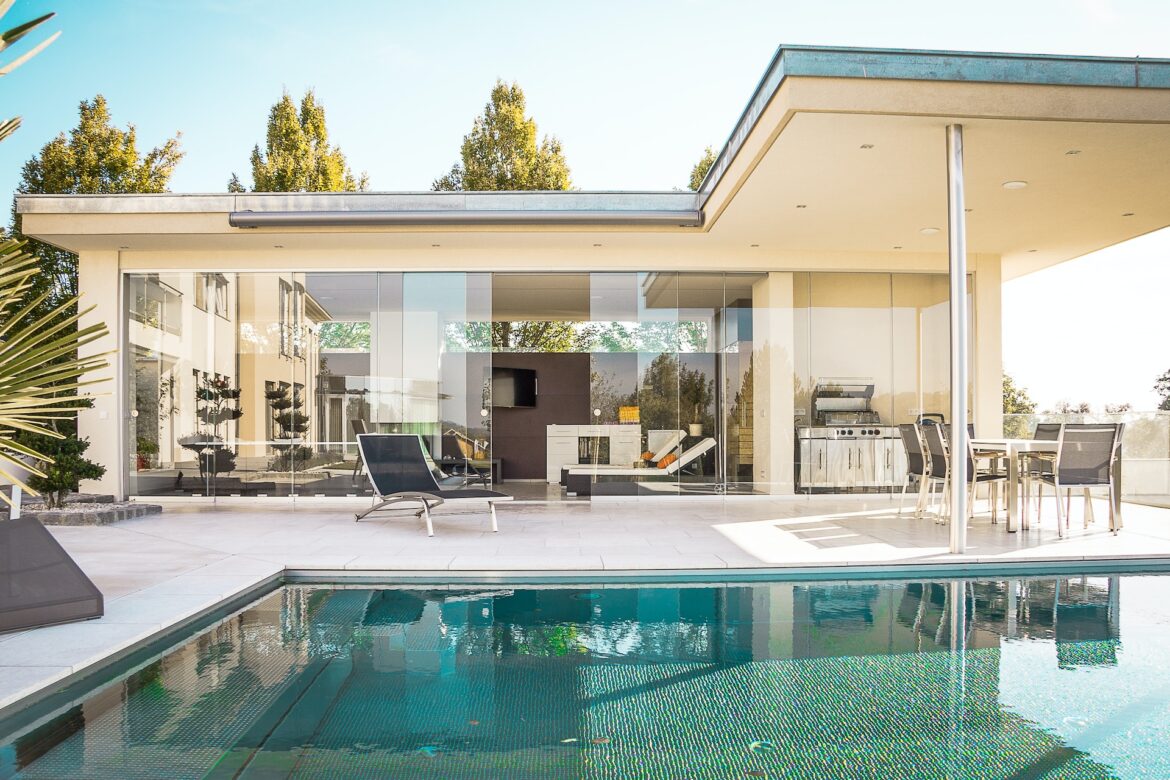Why Gunite Pools Are the Best Long-Term Investment for Your Home
A swimming pool can transform your backyard into an oasis where you can relax and unwind. But which type of pool is right for you?
Gunite pools are made from concrete sprayed onsite-onsite on a steel frame. The process requires a skilled nozzleman to ensure the consistency and quality of the concrete. This is a longer construction process than fiberglass pools.
Longevity
The longevity of gunite pools Columbus, OH is often the main selling point to prospective homeowners. Gunite pools typically last for about 100 years.
They are a very durable pool option built with layers upon layers of thick concrete and steel reinforcing rods. That’s why they don’t experience the normal stress cracks in fiberglass or vinyl liners.
Many gunite pools are finished with plaster (a mixture of cement and marble sand), but other finishes include pebbles, tiles, or exposed aggregate. These options give homeowners more flexibility and freedom with the shape and size of their new pool. These finishes also help their collections look their best, which is essential as they are a significant investment. They should be beautiful for generations to come.
Versatility
Concrete is a versatile material; gunite pools (also known as shotcrete) are an excellent example. This construction uses a steel rebar frame to spray a concrete and sand mixture, allowing the pool to take many shapes.
The gunite is mixed onsite with a volumetric mixer and is applied in layers similar to concrete. But unlike concrete, which is poured, gunite is sprayed on using compressed air. This allows for much faster application and reduces labor costs.
The gunite can then be finished with plaster in various colors to coordinate with your landscaping. You can even add glass tiles and pebbles for a more high-end look, adding instant value to your home. This versatility makes gunite swimming pools an excellent option for your backyard oasis.
Customizability
Unlike fiberglass pools, which can be cookie-cutter in size and shape, gunite or concrete (also known as shotcrete) collections are highly customizable. The possibilities are almost endless regarding pool design, which means you can create the perfect outdoor space for your home.
Concrete is sprayed on a steel frame molded to your desired pool design. A combination of cement and sand is applied at high pressure, pouring over the framework to create a durable, sturdy pool shell.
After the concrete is cured, they use Pebble-Tec interior finish, available in 3 textures and 48 colors, giving you the ultimate flexibility to customize your pool. This entire process takes a more extended amount of time to install than fiberglass or vinyl liner pools.
Durability
Concrete pools (sometimes called gunite or shotcrete) are designed and built onsite, meaning they take longer to install than fiberglass or vinyl. They also require much more labor, resulting in higher initial costs.
Gunite pool construction is done by spraying dry gunite mix, often with a shotcrete nozzle, with water at the installation site. This is much faster than pouring concrete but can still be prone to hold-ups if the nozzle gets clogged.
Once the shell is sprayed on, it must sit to cure and strengthen, adding weeks or even months to your pool-building time. Then, the rough surface must be smoothed. Most people apply plaster, but some opt for pebble surfaces or tiles.
Low Maintenance
Whether you’re looking for a giant kidney bean pool or the pool of your dreams, you can build it with a concrete (also known as gunite or shotcrete) collection. This type of pool offers limitless size options, allowing you to create a swimming oasis that fits your backyard and your family.
Gunite pools are sprayed with a mix of sand and cement applied over a steel-reinforced rebar grid. This mixture is dry until the builder adds water through a spray nozzle.
This process takes longer than fiberglass or vinyl liner pools, but it’s an investment that will last a lifetime and provide your home with added value. Plus, it’s less prone to damage from sharp objects or animals like dogs and cats that scratch and tear the liner of a vinyl pool.




